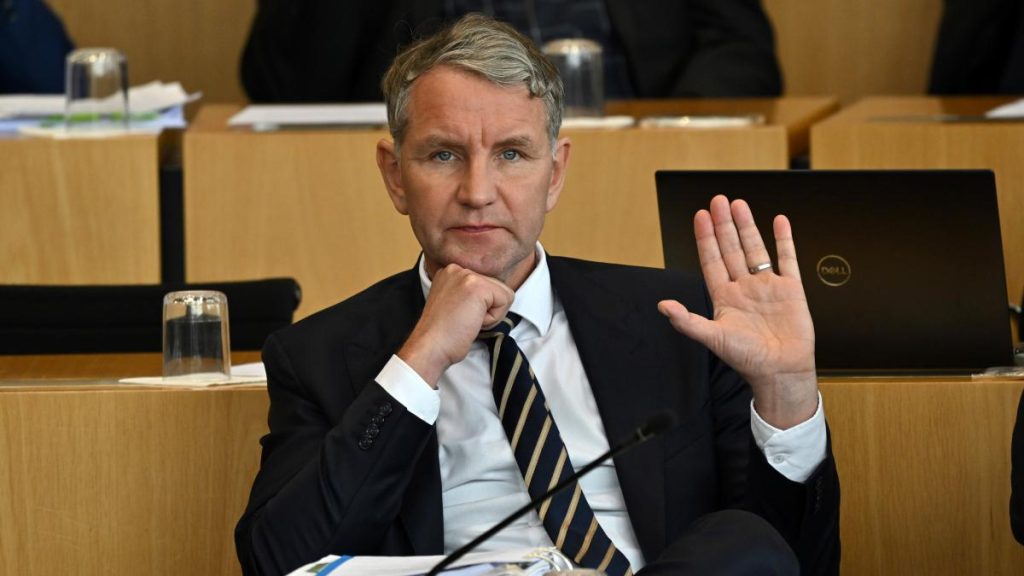The public prosecutor’s office in Halle has filed another indictment against Thuringian AfD parliamentary leader Björn Höcke. He is accused of using symbols of a former National Socialist organization, the prosecutor’s office announced on Wednesday. Höcke allegedly used the banned slogan of the SA (Sturmabteilung) of the NSDAP, “Everything for Germany!” at an AfD event in Gera in December. The SA was the paramilitary organization of the NSDAP. According to reports, Höcke, as a speaker, is said to have pronounced the first part of the slogan “Everything for” himself and encouraged the audience to shout “Germany” through gestures. “The accused has so far not commented on the matter,” it said.
The public prosecutor’s office has requested that the proceedings be combined with a case already pending at the Halle Regional Court. The charge was initially brought in late May 2021, when it was alleged that Höcke had used the slogan in a speech in Merseburg, Saxony-Anhalt. From mid-April, Höcke will have to face the trial at the Regional Court in Halle an der Saale. The Thuringian State Office for the Protection of the Constitution classifies Höcke as a right-wing extremist. In Saxony, Saxony-Anhalt, and Thuringia, the AfD is considered to be firmly right-wing extremist. Höcke is set to run as the lead candidate for the AfD in the Thuringian state elections on September 1.
Höcke’s controversial statements and alleged associations with National Socialist symbols have sparked outrage and condemnation from across the political spectrum. Critics have accused him of trying to legitimize and normalize extremist ideologies. The use of symbols tied to Germany’s dark history has raised concerns about the AfD’s stance on nationalism and xenophobia. The AfD has been under increased scrutiny for its far-right connections and rhetoric, with calls for the party to be monitored more closely by authorities.
The trial against Höcke is expected to be closely watched, as it could have significant implications for the AfD’s image and political standing in Germany. The party has faced criticism for its perceived ties to extremist groups and individuals, with many calling for a ban on the party altogether. The outcome of the trial could also have an impact on the upcoming state elections in Thuringia, as voters assess the party’s stance on nationalism and extremism. The case highlights the ongoing struggle in Germany to address and combat right-wing extremism in politics and society.
Höcke’s alleged use of National Socialist symbols has reignited debates about the limits of free speech and the responsibility of politicians to uphold democratic values. The AfD’s controversial positions on immigration, multiculturalism, and national identity have fueled concerns about the party’s adherence to democratic norms. The trial is likely to prompt discussions about the implications of nationalist and extremist rhetoric in political discourse, and the need for vigilance in defending against ideologies that seek to undermine Germany’s democratic principles. As the trial unfolds, the public will be watching closely to see how the legal system addresses allegations of extremism within the political sphere.


